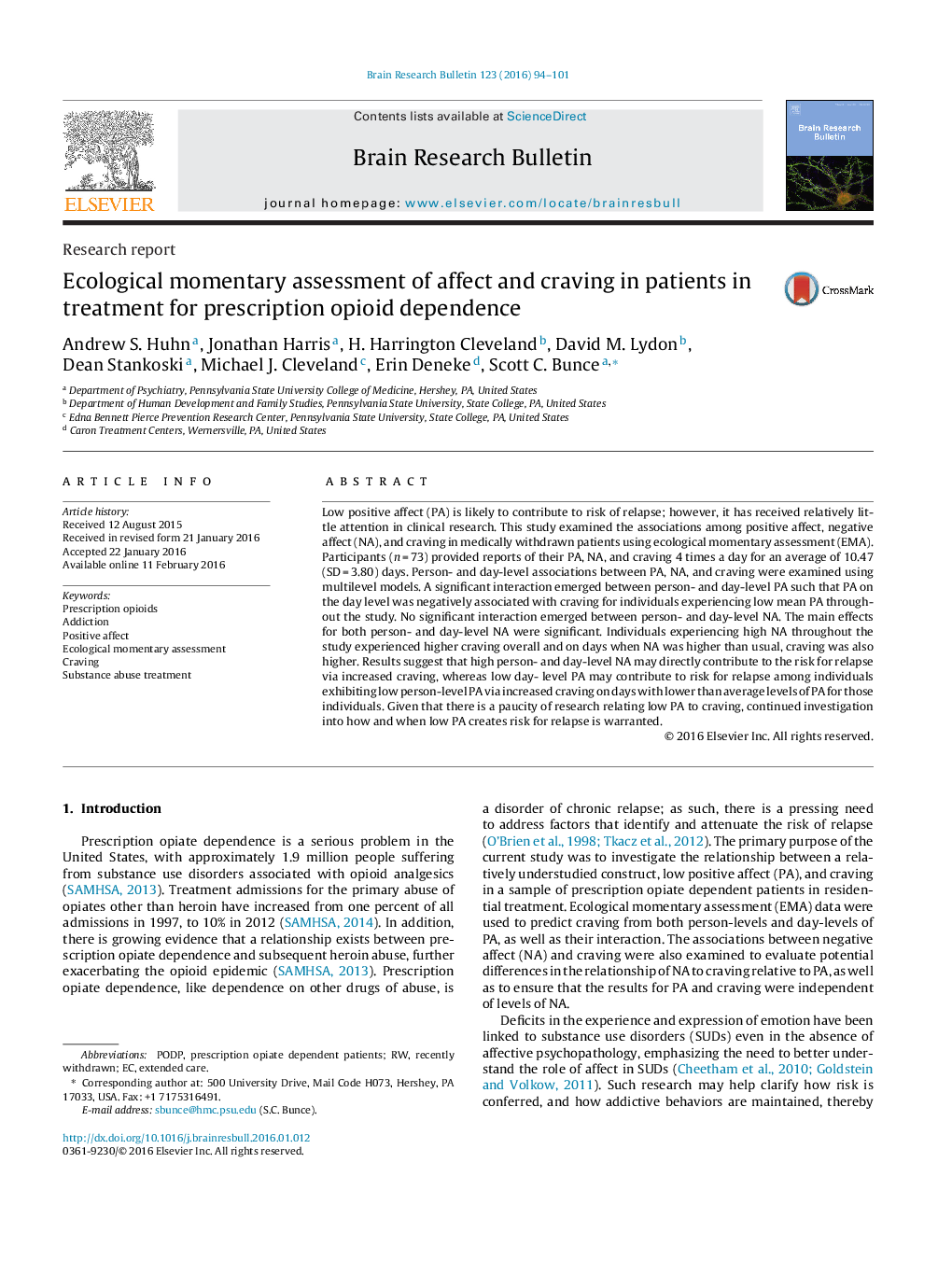| Article ID | Journal | Published Year | Pages | File Type |
|---|---|---|---|---|
| 4318618 | Brain Research Bulletin | 2016 | 8 Pages |
•Ecological momentary assessment used to assess mood in prescription opiate patients.•Sub-group of opiate patients display reduced positive affect early in recovery.•Correlation found between low positive affect and higher drug craving.•Rationale for use of ecological momentary assessment in substance abuse research.
Low positive affect (PA) is likely to contribute to risk of relapse; however, it has received relatively little attention in clinical research. This study examined the associations among positive affect, negative affect (NA), and craving in medically withdrawn patients using ecological momentary assessment (EMA). Participants (n = 73) provided reports of their PA, NA, and craving 4 times a day for an average of 10.47 (SD = 3.80) days. Person- and day-level associations between PA, NA, and craving were examined using multilevel models. A significant interaction emerged between person- and day-level PA such that PA on the day level was negatively associated with craving for individuals experiencing low mean PA throughout the study. No significant interaction emerged between person- and day-level NA. The main effects for both person- and day-level NA were significant. Individuals experiencing high NA throughout the study experienced higher craving overall and on days when NA was higher than usual, craving was also higher. Results suggest that high person- and day-level NA may directly contribute to the risk for relapse via increased craving, whereas low day- level PA may contribute to risk for relapse among individuals exhibiting low person-level PA via increased craving on days with lower than average levels of PA for those individuals. Given that there is a paucity of research relating low PA to craving, continued investigation into how and when low PA creates risk for relapse is warranted.
